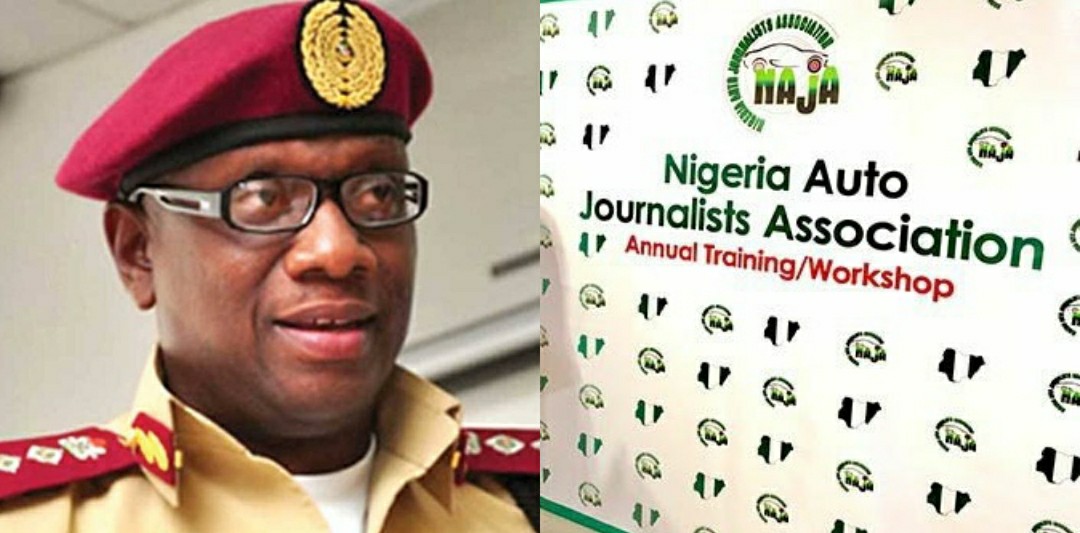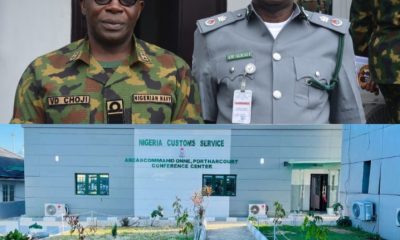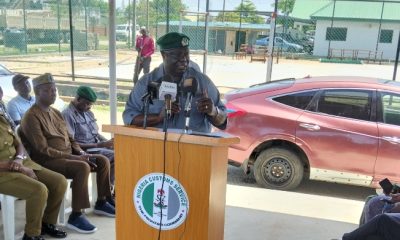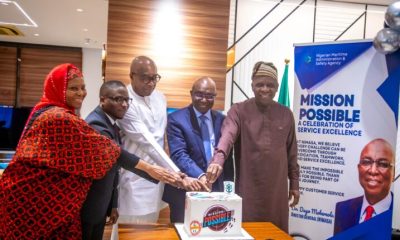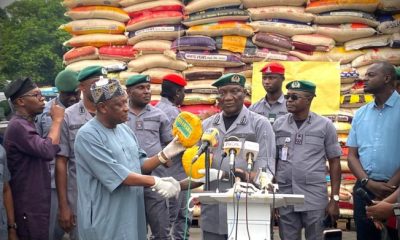By Ezurike Ugochukwu
The Federal Road Safety Corps (FRSC) has warned on the dire consequences of disobedience to road safety rules and covid-19 guidelines as Nigerians join in the celebration of Christmas and new year.
It has enjoined motorists and travellers to improve on road safety rules practices and strongly hold on to the World Health Organization(WHO) and the NIgerian Centre for Disease Control(NCDC) laid down guidelines as: use of facemask, hand washing and maintaining of social distancing while on the road to help reduce the spread of the pandemic.
The call was made by the Corps Marshal Boboye Oyeyemi, the Chief Executive Officer of the FRSC in Lagos during the 5th annual training workshop organized by the Nigeria Auto Journalists’ Association (NAJA) in Lagos.
Oyeyemi assured that his officers would deepen campaigns on social distancing to travellers and motorists to curb the spread of the second wave of COVID-19.

Bisi Kazeem, FRSC Spokesperson
The Corps Marshal who was represented at the event by the Corps Public Enlightenment Officer, Bisi Kazeem stated that the agency would be unrelenting in its commitment to safer road environment even as the End -of -Year Special Patrols begin in all corners of the nation.
He has to say, “Recently, the nation was thrown into series of security challenges characterised by kidnapping of travellers, banditry and armed robbery all of which are automobile transportation-based. The nation was faced with Covid-19 pandemic which requires adherence to social distancing protocols by passengers at the parks and inside the vehicles.
“The responsibility of explaining these Federal Government’s directives and ensuring compliance by all fell on the shoulders of the FRSC which is the lead agency in matters of traffic management and safety administration in the country,” he said.
The FRSC boss expressed satisfaction that the capacity building for auto journalists aligns with the FRSC’s vision of developing the competencies of it’s personnel for improved service delivery.
He maintained, “That’s why training and retraining of our personnel for positive impacts on the motoring public has been part of our development agenda in the past six years of my management.
”we are conscious of the fact that whatever training that our personnel receive will remain incomplete, if a strategic stakeholder like NAJA
who report on the world of motor vehicles are not given similar exposure in the field to complement the efforts, he said.
The outcome of the workshop Oyeyemi noted will contribute immediately to the attainment of the goals of well trained auto Journalists who are capable of delivering on the professional competence of reporting the dynamics, advancements and evolution in the global automobile industry.
“This is more so that the sophistication in auto engineering, reportage as well as the growing reliance on automobile as a veritable means of transportation for private and commercial purposes has made expert knowledge of the industry inevitable.
“People require assurances of the type of choice they could make in their means of transportation and the type of vehicles that could satisfy their safety and adventure needs.
“It becomes imperative that there must be journalists with sufficient technical knowledge on the make, mechanics and technology that determines the type of choices that people could make in their automobiles.
‘This workshop, therefore, provides opportunity for such knowledge, and it’s my hope that it would lead to the desired outcomes for the participants,” Oyeyemi said.
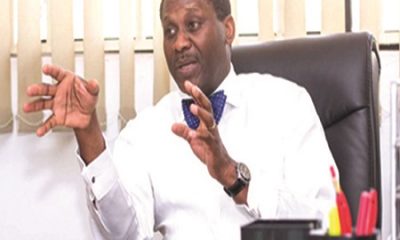
 Business5 years ago
Business5 years ago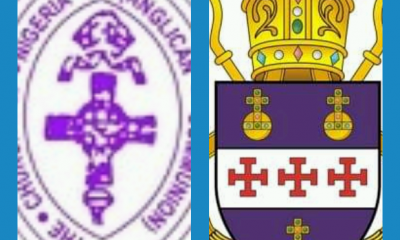
 News6 years ago
News6 years ago
 Crime2 years ago
Crime2 years ago
 News1 year ago
News1 year ago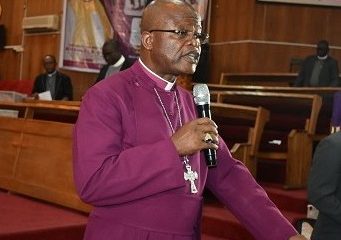
 News5 years ago
News5 years ago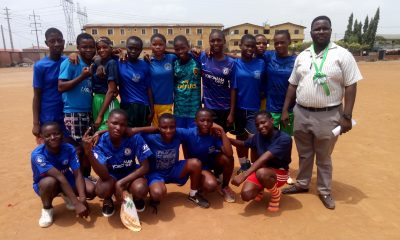
 Football6 years ago
Football6 years ago
